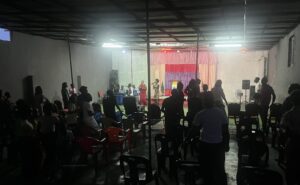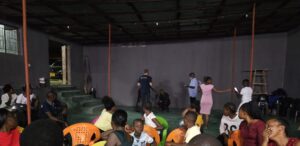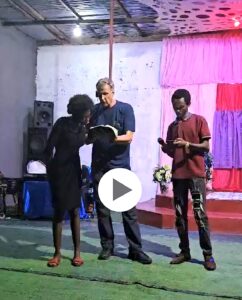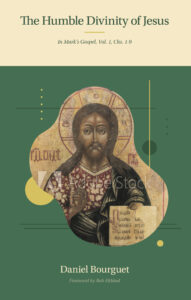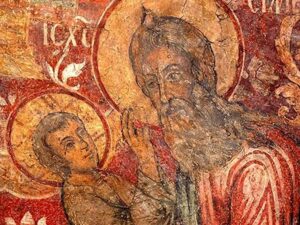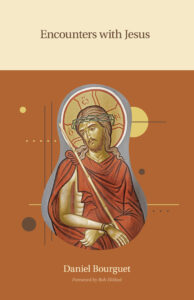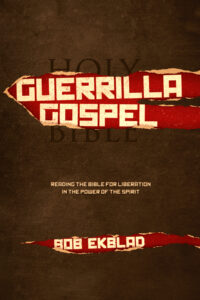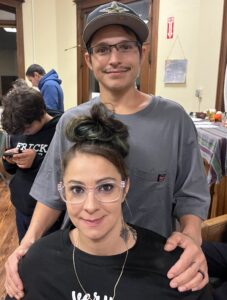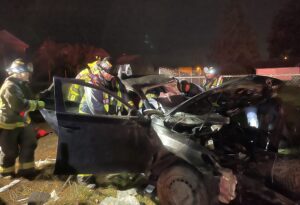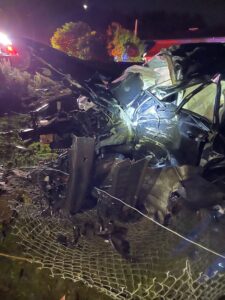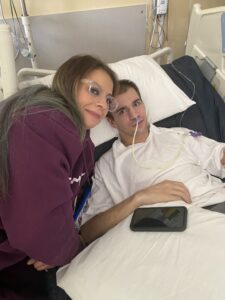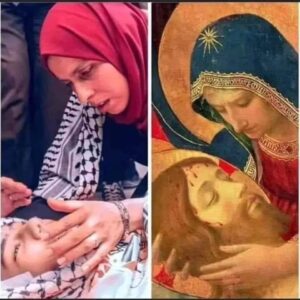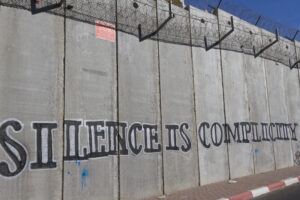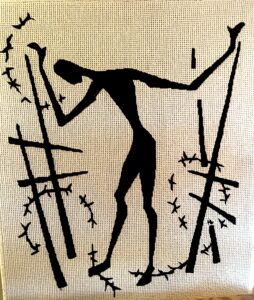Abraham’s departure from his homeland in response to the Word of God is presented as the quintessential action of Biblical faith. As people of faith today, we are still called to a kind of landless, stateless status. There we join with refugees, persecuted believers in restricted countries, undocumented immigrants, the unhoused, and every kind of exile– orienting ourselves towards a Kingdom not of this world.
“By faith Abraham, when he was called, obeyed by going out to a place which he was to receive for an inheritance; and he went out, not knowing where he was going. By faith he lived as an alien in the land of promise, as in a foreign land dwelling in tents with Isaac and Jacob, fellow heirs of the same promise; for he was looking for the city which has foundations, whose architect and builder is God” (Hebrews 11:8-10).
Gracie and I have regular contact with people of faith who have little to no possibility of security in this world. We’re deeply inspired by sub-Sahara African house-church leaders in Morocco, who themselves have fled war zones in their home countries, choose to pastor migrants on their way to Europe. We accompany undocumented immigrants in the fields of Skagit County, USA, who have no hope of being granted legal status here, and no viable future in Mexico. They desire a better country that I’m finding myself increasingly desiring too.
On the day of his arrest Jesus clearly stated:
“My kingdom is not of this world. If my kingdom were of this world, then my servants would be fighting so that I would not be handed over to the Jews; but as it is, my kingdom is not of this realm.”
Would that all of us who call ourselves Christians today fully embrace this Jesus as Savior, Messiah/Christ.
To do this though we must accept an insecure status in this world, stepping away from attachments and security mindsets of the “haves,” and into the insecurity of the “have nots.”
“All these died in faith, without receiving the promises, but having seen them and having welcomed them from a distance, and having confessed that they were strangers and exiles on the earth. For those who say such things make it clear that they are seeking a country of their own” (Heb 11:13-14).
Yesterday, Good Friday, I had the privilege of leading a two-hour Zoom teaching session with Iranian believers inside of Iran. Jesus-followers in restricted countries have no expectation that they’ll have state-sanctioned religious freedom or come to have power in any way. Yet they choose to risk imprisonment and even death, meeting secretly to worship, study the Bible and pray.
I was deeply humbled when they asked me to lead them in Communion at the end of our study, where we joined together in the Sacrament as the Body of Christ.
We in the West, like our sisters and brothers in restricted countries, are called to embrace a “stranger and alien” status. This status must be continuously chosen as we resist the temptation to return to earthly securities.
“And indeed if they had been thinking of that country from which they went out, they would have had opportunity to return. But as it is, they desire a better country, that is, a heavenly one. Therefore God is not ashamed to be called their God; for he has prepared a city for them” (Heb 11:15-16).
Do we desire a “better country?”
If yes, then this may well mean engaging in deliberate renunciations of our securities and entitlements, which is especially difficult if we have grown up privileged.
We are not called to fight for our rights, our “freedoms,” our party or nation here on this earth, though Jesus certainly showed us he loved the world and cared for people– body, soul and spirit. Jesus healed the sick, cast out demons, fed the hungry crowds—teaching and preaching the Gospel to them, calling to do likewise.
I myself find Hebrews 11:24-26 highly relevant, yet also highly challenging.
“By faith Moses, when he had grown up, refused to be called the son of Pharaoh’s daughter, choosing rather to endure ill-treatment with the people of God than to enjoy the passing pleasures of sin, considering the reproach of Christ greater riches than the treasures of Egypt; for he was looking to the reward.”
May we arise to join Jesus in his Kingdom now, fully in this world, but deliberately not of it. May we learn to look “to the reward,” to the City prepared for us by God.
May we remember that this will not happen automatically as we attend churches, listen to podcasts, or even engage in spiritual and social practices. We are called to reorient our lives towards Jesus, stepping into a new lifestyle that follows.
“Therefore, since we have so great a cloud of witnesses surrounding us, let us also lay aside every encumbrance and the sin which so easily entangles us, and let us run with endurance the race that is set before us, fixing our eyes on Jesus, the author and perfecter of faith, who for the joy set before him endured the cross, despising the shame, and has sat down at the right hand of the throne of God.”
The book of Hebrews teaches us that following Jesus involves dislocation, departure to a place “outside” whatever “insider” camp within which we find ourselves.
This frees us to join alongside others living in precarious circumstances as fellow travelers, bearing witness to a more certain hope, that we step into by faith.
“So, let us go out to him outside the camp, bearing his reproach. For here we do not have a lasting city, but we are seeking the city which is to come” (Heb 13:13-14).
